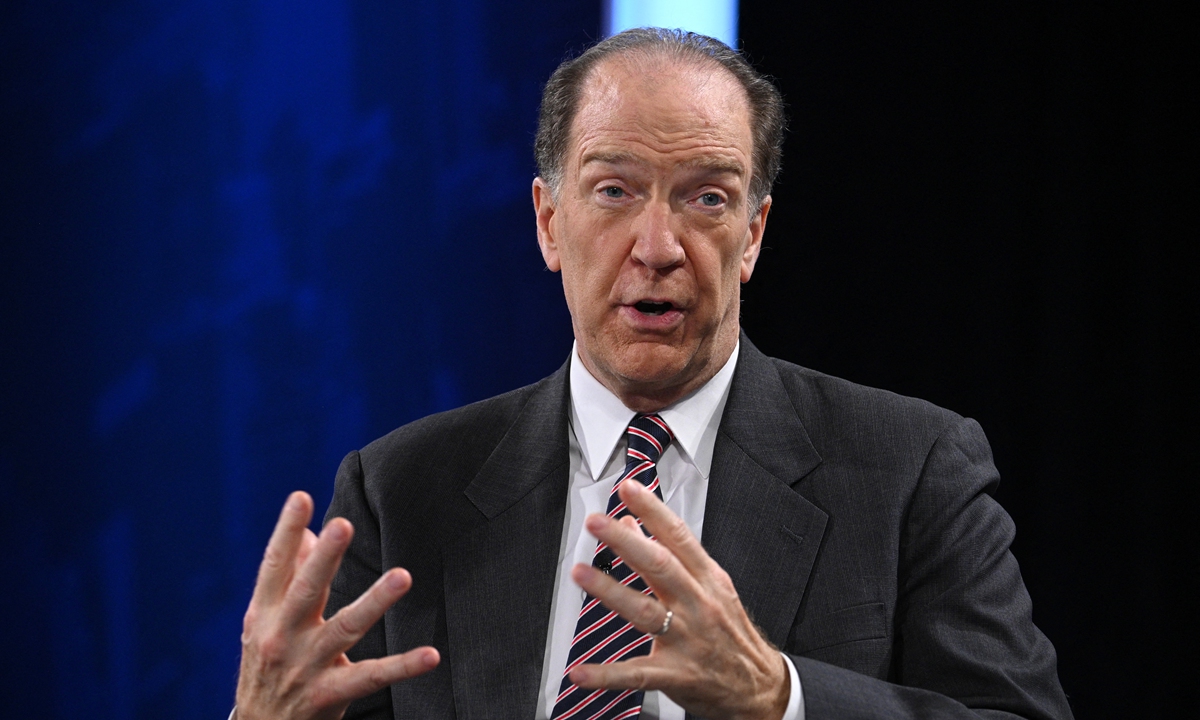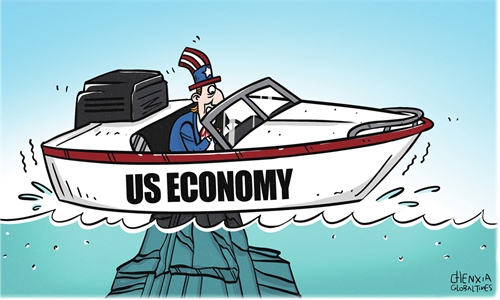World Bank president told the opposite of truth, sounding unprofessional: Global Times editorial

World Bank President David Malpass Photo: AFP
World Bank President David Malpass recently stated in an interview with Bloomberg that China is unwilling to deliver more stimulus during the current international slowdown. On the one hand, Malpass acknowledged that China's approach "may be good for their economy and good for the long run," but then he abruptly switched the tone by saying "that puts more burden on the US" and is not conducive for the US to support international growth.
It is not clear whether Bloomberg accurately reported what Malpass meant, or took his remarks out of context. There are obvious contradictions and logical loopholes in the short report. In particular, these wordings are very inconsistent with his identity - World Bank president. Such absurd complaint - blaming China's "lack of stimulus" as part of the reasons for the sluggish world economy and US missteps - does not seem like the language from a professional.
Setting aside how China regulates its economy and what approaches it adopts, which is entirely China's own business, on which outsiders have no right to point fingers, the above-mentioned rhetoric was wrong as it deviates from the fact: If something is good for the Chinese economy, it must be good for the world economy as well. The steady development of the Chinese economy is a positive asset to the globe and meets the expectations of the international community. The "burden on the US" theory is bizarre. It is a new variant of "China responsibility theory."
"Coincidentally," almost the same time Bloomberg published this report, the US Federal Reserve was holding a meeting to prepare to raise interest rates again. It is not difficult to see that when some say China's move is not conducive for the US to support international growth, the unspoken message is actually complaint against China for not coordinating with Washington to transfer the US' inflationary pressure to the world by artificially pushing the dollar up. It also shows a subtle demand - asking China to adopt a deluge of strong stimulus policies and sacrifice itself to satisfy US appetite. Such a view is unfair and irresponsible.
Scapegoating China has been a common behavior of Washington politicians over the past years for the purpose to steal the spotlight and shirk their responsibilities. But generally speaking, professionals refrain from doing such crude and superficial things.
Malpass, who is also an economist, should not follow the standards of Washington politicians. He used to be undersecretary of the Treasury for the US, but he is supposed to change his role into the head of an international financial institution since he took office as president of the World Bank, rather than acting like the US' "mouth."
Yet those who know World Bank will find Malpass' remarks not surprising. Due to historical and practical reasons, Washington has long held the World Bank under its control and treated it as its own agency. Since 1945, 13 presidents of the World Bank, including Malpass, have been nominated by the US, all of whom are exclusively American. Blurring the boundaries between the US and the World Bank is also shown in the attitude of some World Bank officials. In this regard, some from within the US and the West are also increasingly reflecting on this. As US economist Joseph Stiglitz put it, "should America continue to insist on controlling the selection process, it is the Bank itself that would suffer."
Of course, Washington has its own excuse - taking control of the World Bank seems to be the right thing to do, as some US elites believe, due to the dollar's unique status as the world's dominant currency, which indeed determines the dollar's close ties with the world. But precisely because of this, the US has also a special responsibility to the world economy and financial stability. What it should do is to be accountable for the world, instead of transferring the crises to and shifting the blame to other countries, or even trying to make way for its exploitation of the world by manipulating the World Bank. Other countries in the world, including China, have no reason, let alone duty, to "cooperate" with Washington's self-serving practices.
It's true that the Chinese economy is facing challenges. However, it is out of a responsible attitude that China insists on making progress on the basis of stability, instead of adopting a deluge of strong stimulus policies. We want to ask what the US was doing while China has contributed over 30 percent to world economic growth for many years in a row - the US launched a trade war against China and took a series of measures such as "decoupling," cutting off supplies, imposing sanctions and restrictions to suppress the Chinese economy. Malpass has stated the opposite of truth: It's the US that is putting more burden on China, which is adverse to China's support for world economic growth.

